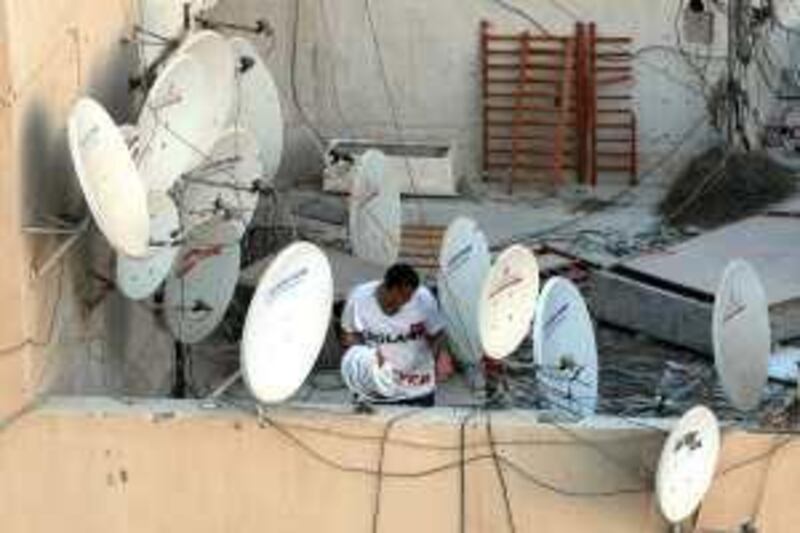Diverse population, multitude of stations make copying another country's system impossible The consultants hired to set up the UAE's long-awaited electronic TV audience measurement system say it will have to be unique to cater for the country's television market. The UAE's unusually diverse population and more than 400 free-to-air satellite channels rule out the possibility of copying another country's system, according to Romain Delavenne, the director of telecommunications, media and entertainment for the Dubai office of Capgemini Consulting.
"There are two main challenges in the UAE," Mr Delavenne said. "First, the diversity of the population means you have to have a panel [of sample viewers] that is quite large, compared to the population. And the second thing in the UAE is the dynamism of the media landscape, which has many channels." One of the closest models might be Singapore, Mr Delavenne said, which also has a diverse population and so requires a relatively high number of people meters, the set-top boxes that record and transmit viewer behaviour.
In Singapore, the boxes are in about 750 households for a population of 4.5 million; a high ratio compared with France's 3,000 boxes for a population of more than 60 million. There are two other MENA countries with people meter systems, Morocco and Lebanon, but both have demographics and cultures very different from the Gulf. That leaves the UAE without many precedents for the people meter system that its media and advertising executives have been seeking for more than a decade.
The National Media Council (NMC) and the Telecommunications Regulatory Authority (TRA) appointed Capgemini Consulting on August 10 to advise them on the best way to roll out the system. Capgemini is charged with conducting research with stakeholders including advertisers, media buying units and broadcasters, as well as research companies, and delivering its recommendation within eight weeks. The hiring of the consultants comes six months after Abu Dhabi Media Company, which owns The National, announced that it would pay the amount - between US$2 million (Dh7.3m) and $3m - required to have a people metering system running before the end of the year.
At the moment, viewership data are collected by telephoning people and asking them to remember what they watched the previous day, and there is no agreement on whose research should act as the currency in the marketplace. Advertising and media executives have long complained that the lack of accurate television viewership data was stifling the growth of the region's media industry, but previous efforts have stalled without being able to find a consensus about how to introduce the people meters.
Karl Bjurstrom, the managing consultant from Capgemini's Stockholm office, said the government backing made this effort different. "What's new here is that the NMC and the TRA are behind it," Mr Bjurstrom said. "It could be considered to be a national duty to participate in this. That's how it's positioned in the UK." While no decisions about payment structure have yet been made, Mr Bjurstrom said people metering systems are generally funded by broadcasters through a combination of upfront payments and subscriptions to regular data reports.
In Singapore, for example, the state-owned MediaCorp, which operates all seven free-to-air terrestrial television channels, commissions TNS Market Research to run its audience measurements, and then sells the data to other stakeholders. In other markets, an industry committee is set up to administer the measurement system. Whatever the structure, the most important thing is to get all stakeholders on board, Mr Bjurstrom said.
"The big thing is that it needs to be credible and accepted," he said. "To achieve that, you need to get stakeholder buy-in. There are some technological options to choose between, but that in itself will not get you where you need to go." khagey@thenational.ae





